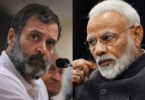Zachary Basu
BERLIN: Germany’s dom-estic security service has placed the far-right Alter-native für Deutschland (AfD) party under surveillance for suspected extremism, German media reported on Wednesday.
Why it matters: It’s a rare moment in Germany’s post-war history in which a mai-nstream political party has been targeted by the country’s intelligence apparatus for posing a potential threat to democracy, according to the New York Times.
The anti-immigrant, Eurosceptic AfD won seats in the Bundestag for the first time in 2017, becoming the third-largest party in the federal legislature with 89 elected members.
AfD has representation in all 16 of Germany’s state legislatures, and saw a surge in vote share in 2019 at the expense of establishment parties long dominated by Chancellor Angela Merkel’s center-right Christian Democratic Union (CDU).
The big picture: Germany’s Federal Office for the Protection of the Constitution (BfV), which was founded after World War II in part to prevent the rise of anti-democratic forces, classified the most radical wing of AfD as extremist last year and said it would surveil its top leaders.
The BfV’s reported decision to begin surveilling the full party, with tactics that include placing informants and wiretapping individuals, reflect fears about the growing influence of those radical members, according to Politico.
Germany is holding federal and several state elections later this year. Due to ongoing lawsuits filed by AfD, candidates in those elections will reportedly be exempted from surveillance, according to Der Spiegel.
What they’re saying: “The intelligence agency is acting purely politically when it comes to the AfD,” tweeted AfD’s Bundestag leader Alice Wiedel, a sentiment echoed by other prominent party members. “Given the state and federal elections this year that is particularly remarkable.”
Between the lines: The news comes at a sensitive time in Germany’s political trajectory, with Merkel set to step down as chancellor after a 16-year reign that saw her become a global symbol of liberal democracy.






